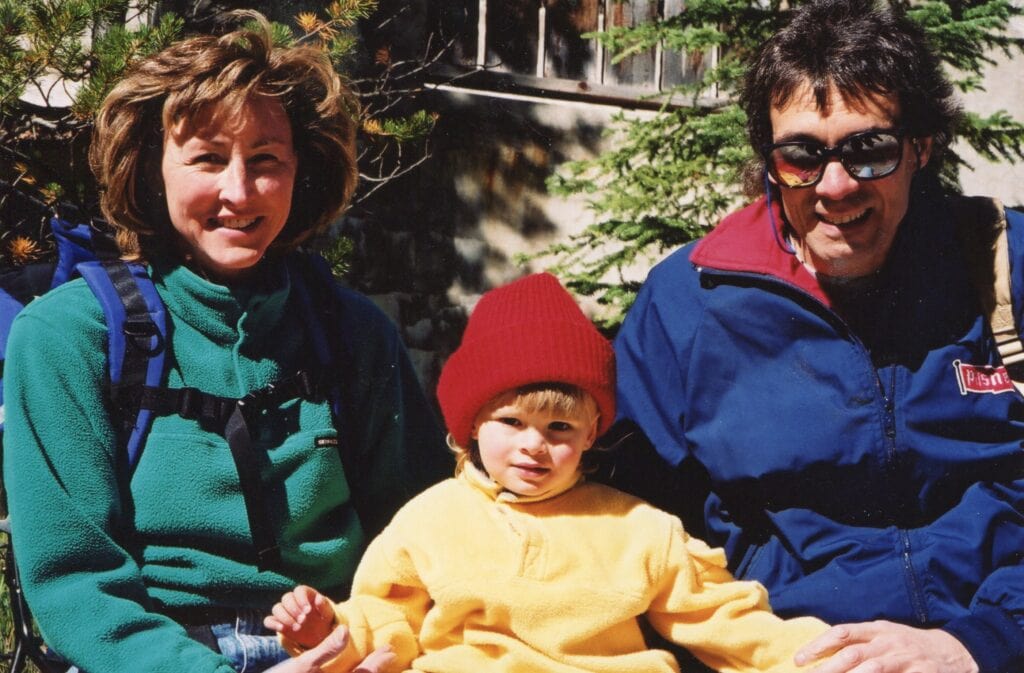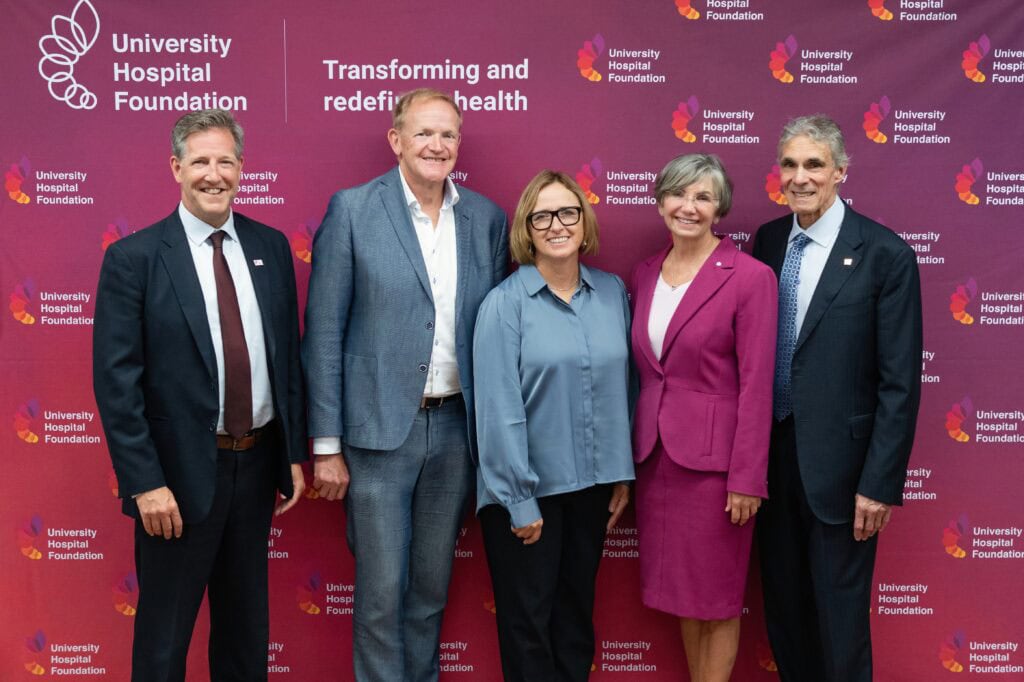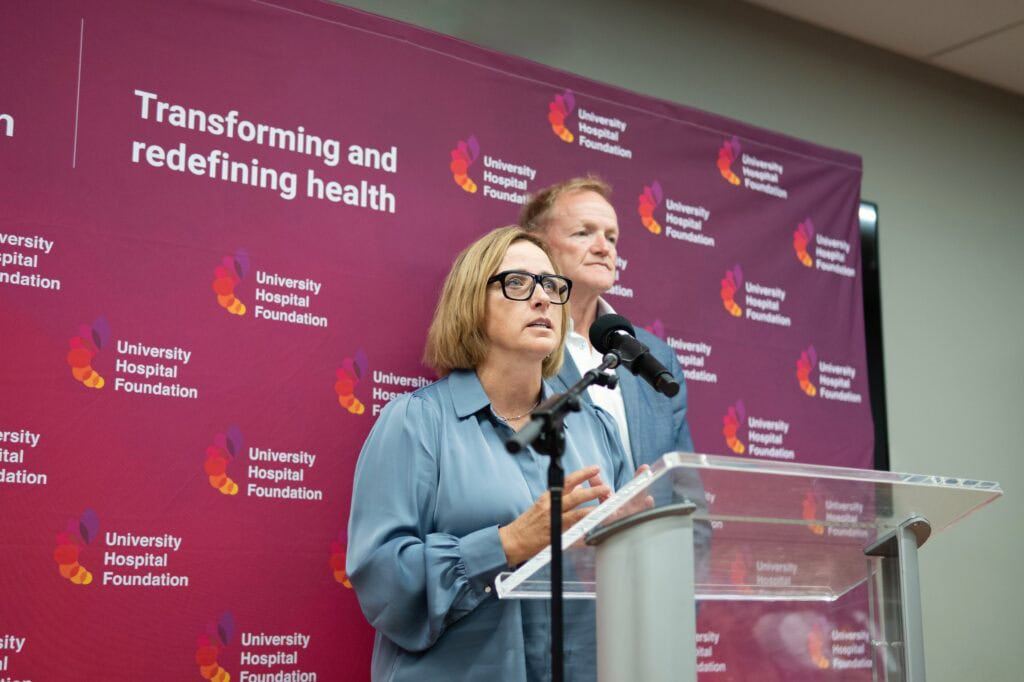Creating a Pathway for Albertans with Dementia
Joe and Shirley, retired schoolteachers, like to keep busy. They visit different places around Edmonton and enjoy going for coffee. They’re determined to keep booking cruises until someone tells them to stop.
But Joe’s memory, shaky from old hockey concussions, has gotten much worse over the past nine years—sometimes he forgets things within minutes. Although he hasn’t been officially diagnosed with dementia, his driver’s license wasn’t renewed, and they’ve been told to bolster their support network. His friends don’t invite him hunting anymore. He loves to go for walks but lately, he’s been getting lost, so Shirley goes with him.
The hardest part is knowing that this is only the beginning.
They are not alone. Today, almost 70,000 Canadians are living with dementia — a number projected to rise to one million by 2030. In Alberta, with one of the fastest-growing ageing populations in the country, the need for new approaches to care has never been greater.
Another Family’s Story: Linda and David Salloum
For Linda Salloum, dementia came far too early. At just 54 years old, the kind, thoughtful, and intelligent mother of two was diagnosed with early-onset dementia. Her daughters were only 11 and 14 at the time.
Her husband, David, recalls that Linda herself was the first to notice something was wrong. Once they had the formal diagnosis, it gave him clarity about the subtle changes he had seen years before.
“When we got the diagnosis, I thought back to things she had done two or three years earlier and realized, OK, that’s why she did that,” David says.
For David, the University Hospital Foundation’s new Dementia Care Pathways Project comes too late to change Linda’s journey, but he sees how much of a difference it could make for others.
“I think it would have given us a bit more time to get prepared for it,” he says.


Rethinking Dementia Care in Alberta
Most people living with dementia remain at home, supported by spouses, children and friends. Yet, traditional funding and research have focused largely on institutional care in the later stages of the disease. This leaves a troubling gap for those in the earlier stages, who are navigating daily life with dementia while still living in their communities.
The Dementia Care Pathways Project is working to close that gap. Announced this fall, the multi-year initiative is designed to transform dementia care in Alberta, focusing on early diagnosis, coordinated clinical care and stronger community supports.
Led by University of Alberta researchers Dr. Adrian Wagg and Dr. Holly Symonds-Brown, the project is supported by a $1 million grant from Alberta’s Primary Care Innovation Fund, alongside early funding from the University Hospital Foundation and donors who believe in building a brighter future for dementia care.
Three Pillars of Change
The Dementia Care Pathways Project is built on three pillars that will reshape how people living with dementia and their families experience care:
- Better Care from Day One: New clinical pathways will ensure people receive timely diagnoses, faster referrals and more coordinated care between family doctors and specialists.
- A Provincial Dementia Registry: A centralized registry will connect people with clinical trials, speed up research and allow clinicians across Alberta to share vital data more effectively.
- Help Finding the Right Supports: User-friendly tools, including navigation resources and liveable community asset maps, will make it easier for people living with dementia and their care partners to find services, programs and social opportunities that keep them connected.
The McLeod River Primary Care Network and Edmonton’s Kaye Family Medicine Clinic will be the first to pilot the program, helping to test, refine and prove the pathway before it expands province wide.
Why This Matters
“I hear from people living with dementia and their care partners that they often feel very much alone in their efforts to keep going on with everyday life with the changes that dementia brings,” says Dr. Holly Symonds-Brown, Dementia Care Pathways Co-Lead. “This project is about listening to people living with dementia, caregivers and families about what works well, what’s difficult and then co-designing solutions with them. Through this work we can build a sense of community, identify supports that are practical and helpful in making a meaningful difference in daily life for the person living with dementia and their support systems.”
An early diagnosis and better access to resources mean individuals can live with more independence for longer, families can better plan for the future, and the health system can reduce the strain of delayed or fragmented care. It also means more opportunities for research and clinical trials that could change the trajectory of dementia for future generations.

The Role of Community Generosity
While government and institutional support provide a strong foundation, philanthropy is key to making this vision a reality. The University Hospital Foundation is working to raise the additional funds needed to fully launch and sustain this work.
For families like Joe and Shirley’s, the Dementia Care Pathways Project could make all the difference—providing not just a diagnosis, but a plan, a network of support and a chance to live well for as long as possible.
Together, we can change the future of dementia care in Alberta.
Sources:
70,000 Canadians living with dementia: https://alzheimer.ca/en/the-many-faces-of-dementia-in-canada-landmark-study-volume-2
David Salloum’s story first appeared on Global News: https://globalnews.ca/news/11405701/dementia-care-pathways-alberta/
Share this article
Facebook
Twitter
LinkedIn
